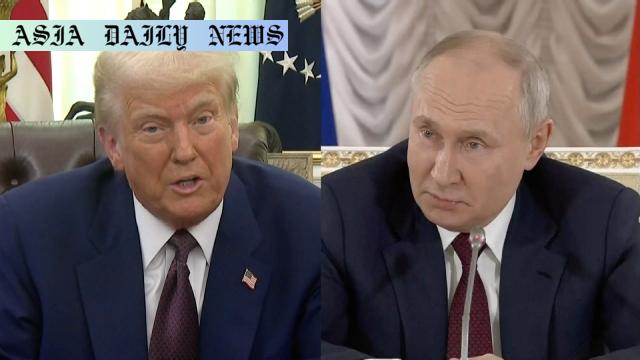Ceasefire: US aims for Ukraine ceasefire by April 20, though many call the timeline ambitious. European nations express skepticism.

Introduction: The Push for Peace in Ukraine
The United States, under the administration of President Donald Trump, has set an ambitious target of establishing a ceasefire in Ukraine by April 20. Reports from Bloomberg suggest that US officials have briefed their European counterparts to expedite these discussions, despite concerns over the feasibility of meeting that timeline. While the push is seen as a proactive step, it has also ignited skepticism among foreign nations and observers.
A Controversial Timeline
According to individuals familiar with internal discussions, the pace of negotiations has been called unrealistic. One insider suggested that a resolution is more probable by the end of the year instead of the immediate April deadline. The urgency of these discussions indicates a political effort to showcase swift diplomacy, something that the Trump administration has emphasized in its tenure.
European Allies and Ukrainian Opposition
European nations and Ukraine have expressed discontent with the negotiations, particularly since they feel excluded from the core discussions. Kyiv has noted that any ceasefire talks must involve active participation from Ukraine itself to secure a resolution that respects its sovereignty. The European response also raises concerns about alienating allied nations while attempting to foster peace with Russia.
Upcoming US-Russia Discussions
Talks involving senior officials from the United States and Russia are reportedly scheduled to occur in Saudi Arabia in the coming days. Steve Witkoff, Trump’s Middle East envoy, has confirmed his travel to the kingdom, stating that he will engage with Russian representatives on the matter. This move is being closely monitored as an extension of Trump’s foreign policy strategy focused on direct negotiations with global leaders.
Trump and Putin: A Potential Meeting
President Trump hinted at the possibility of meeting Russian President Vladimir Putin to specifically address the Ukraine ceasefire. Such engagement could mark a significant geopolitical moment. However, critics worry about bypassing Ukraine in this dialogue, perceiving it as undermining the nation’s role in deciding its future.
Broader Implications
If Trump succeeds in brokering a ceasefire, it could be marked as a landmark achievement in his presidency. Yet, the challenges cannot be overstated. From mistrust among European allies to apprehension in Ukraine, the process is marred with obstacles. It remains to be seen whether the planned talks in Saudi Arabia pave the way for meaningful progress or if they merely underscore the complications of geopolitics.
Conclusion: A Complex Road Ahead
The US administration’s push for a Ukraine ceasefire exemplifies both ambition and contention. While achieving peace in conflict-ridden regions is critical, any such effort must balance diplomacy, inclusivity, and realistic timelines. The coming weeks will reveal whether this initiative gains global support or frays international relations further.
Commentary
Balancing Ambition and Realism
The idea of securing a ceasefire in Ukraine by April 20 is undoubtedly a bold ambition. It underscores a sense of urgency from the US administration and President Trump’s desire to achieve tangible results on the international stage. However, as with many such initiatives, the devil lies in the details. Diplomacy requires careful consideration of all stakeholders, particularly a nation as directly impacted as Ukraine.
Excluding Key Players
One of the most contentious aspects of these proposed talks is the exclusion of Ukraine from core negotiations. For any peace effort to be sustainable, it must involve all affected parties as equal contributors. Failing to do so risks sidelining critical voices and fostering a resolution that may not hold in the long term. It is also surprising to see European allies expressing skepticism, highlighting potential fractures in the cohesion of international diplomacy.
The Role of Saudi Arabia
The choice of Saudi Arabia as the venue for these discussions adds a layer of intrigue. While the kingdom has played host to peace talks before, its involvement in this matter is likely to spark curiosity and criticism. What remains critical is whether these dialogues will translate into actionable outcomes or remain symbolic gestures.
Looking Ahead
President Trump’s willingness to personally engage with President Putin is a notable development. Such meetings can sometimes unlock progress where traditional talks fail. However, they must be approached with clarity of purpose and a commitment to inclusivity. As the world watches closely, it’s clear that the push for peace in Ukraine will test the limits of diplomacy, trust, and international cooperation.


